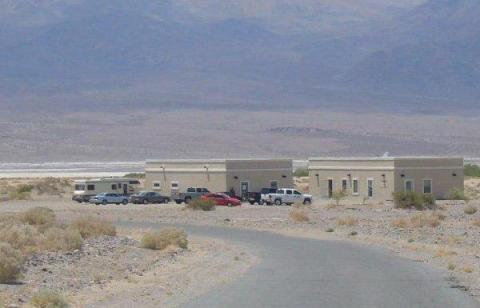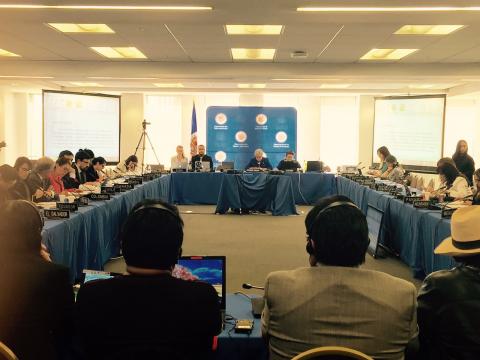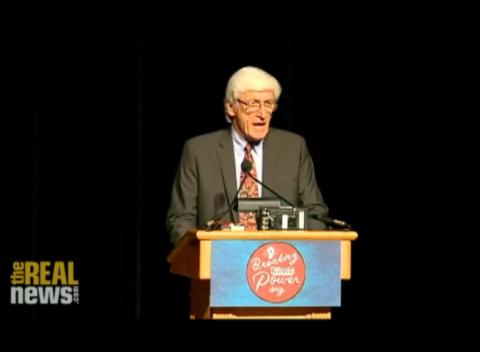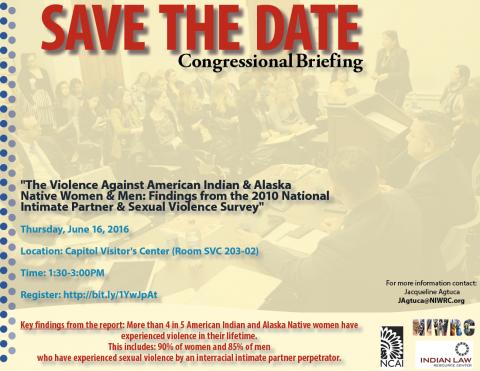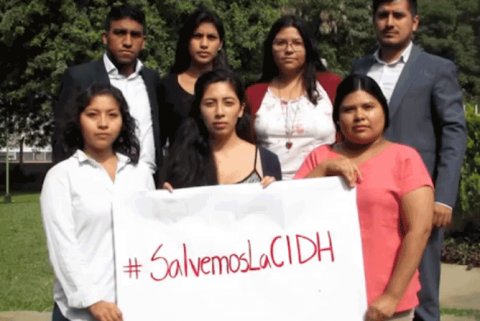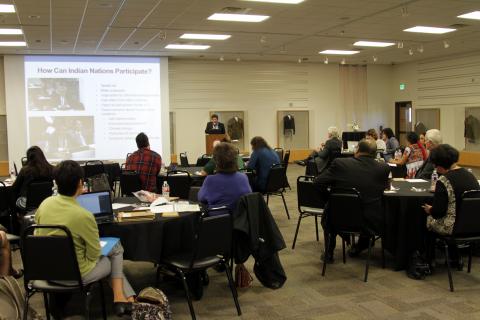The Timbisha Decision ─ A Familiar Story and Dangerous Precedent
The Death Valley Timbisha Shoshone Tribe was dealt another setback last week in its ongoing efforts to preserve its constitutional government in the face of persistent federal interference. This is a familiar story. The United States government claims to support tribal sovereignty and to respect self-government, but when it wants to overrule or take over a tribe it simply does so. It is rarely stopped or restrained by the courts.
Working Group Approves American Declaration on the Rights of Indigenous Peoples for Vote
The American Declaration on the Rights of Indigenous Peoples has been approved to go before the Organization of American States (OAS) General Assembly in June, 2016. The OAS is a regional intergovernmental human rights organization of 35 member countries of the Americas including the United States. The American Declaration is a comprehensive, regional human rights instrument that promotes and protects the rights of indigenous peoples in North, Central, and South America and the Caribbean. It improves on the UN Declaration on the Rights of Indigenous Peoples, in part by incorporating a stronger and more thorough treatment of treaties and gender equality.
The Indian Law Resource Center Among Presenters at Historic Gathering
The Center’s Executive Director Robert T. Coulter helped kick off the Breaking Through Power event May 23, 2016. in Washington, D.C. Speaking under the theme Breaking Through Power: How it’s Done, Coulter shared the challenges facing indigenous peoples today and what can be done to make sure the rights of indigenous peoples are protected.
New Report Confirms Violence Against Native Women is Worse than Previously Thought
The National Institute for Justice has published its latest research report examining the prevalence of intimate partner and sexual violence against American Indian and Alaska Native women and men. This report increases awareness about American Indian victimization to inform policies and practices surrounding implementation of VAWA 2013 special domestic violence jurisdiction over non-Indians. In addition, the report highlights a critical need for further measures to intensify and strengthen the response to violence against American Indian women, and particularly Alaska Native women. On June 16, the National Indigenous Women’s Resource Center, Indian Law Resource Center, and National Congress of American Indians will be holding a congressional briefing to inform lawmakers about these and other findings.
Support the Inter-American Commission on Human Rights
The Inter-American Commission on Human Rights (IACHR) announced May 27, 2016, that due to a financial crisis it would be severely limited in its ability to fulfill its mandate by the Organization of American States (OAS) to promote respect for human rights in the region. We ask you to join us in creating awareness about the value of the IACHR and call for steps necessary to fund the Commission. #savetheIACHR #SalvemosLaCIDH
Oklahoma Tribes Learn About Engaging in the UN System
Indian nations have historically been international actors and a part of the world community of sovereign nations, and this is shown by their treaties with the United States and other nations. Today, tribes are seeking to rejoin the international community in order to protect their lands, sovereignty, and cultures, and to benefit their communities, according to experts who spoke at the “Indian Nations in the United Nations” workshop hosted by the Citizen Potawatomi Nation and the Indian Law Resource Center on April 22, 2016 in Shawnee, Okla.

